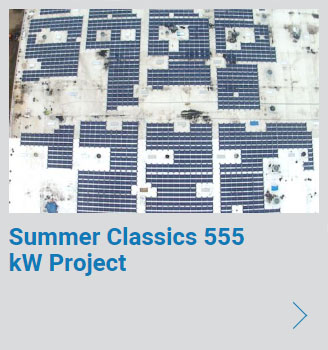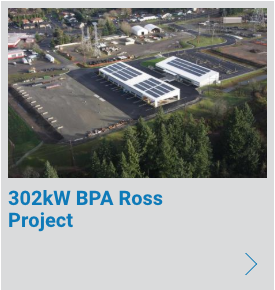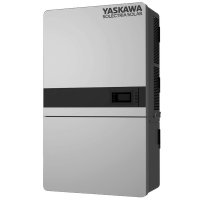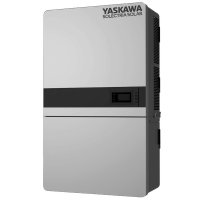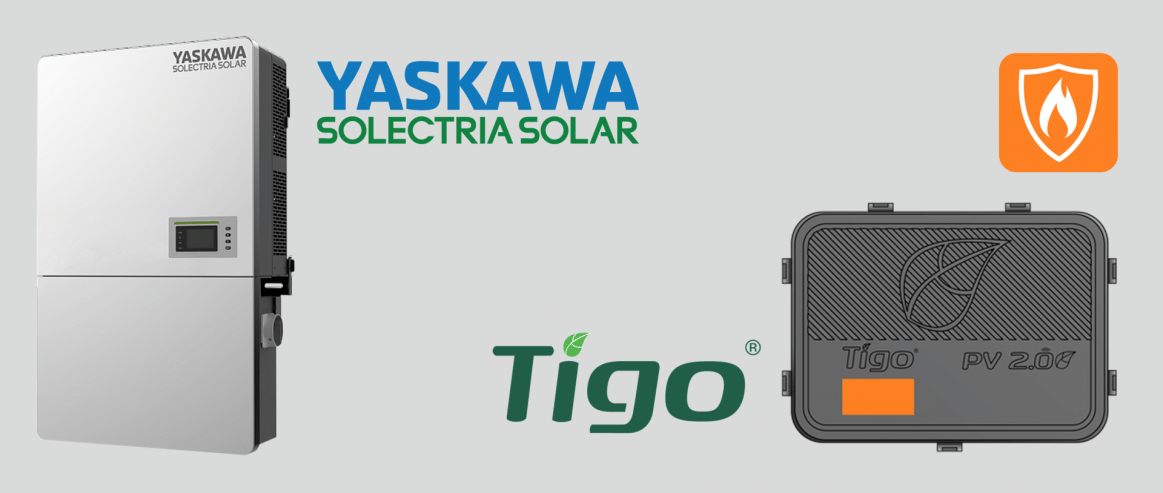
By Michael Nieman, Senior Applications Engineer, Yaskawa Solectria Solar
The 2017 edition of the NFPA70, National Electric Code (NEC), brings significant updates to the requirements for rapid shutdown of PV systems on buildings. Most notably, article 690.12 now requires voltage within the array boundary to be limited upon initiation of the rapid shutdown. Many commercial project owners and installers are turning to costly micro-inverter or dc optimizer solutions that require monitoring for compliance. While these solutions are popular in the residential solar market, they do not scale effectively for commercial rooftop solar systems.
Yaskawa Solectria Solar’s transformerless string inverters, when coupled with the Tigo Energy TS4 Platform, introduce alternatives that are more cost-effective and reliable than compliant traditional solutions making it the optimal solution for achieving UL-listed module-level rapid shutdown compliance on commercial rooftop solar systems. Specifically, the Yaskawa Solectria Solar PVI-50TL-480 and PVI-60TL-480 three-phase transformerless inverters paired with either of Tigo’s UL-certified integrated solutions - TS4-F (Fire Safety) or advanced retrofit/add-on solution TS4-A-F (Fire Safety) - is a cost-effective commercial solution. The TS4-A (Advanced Retrofit/Add-on) is the latest suite of units from Tigo and provides improved lightweight hardware that reduces labor costs. Both solutions use power-line communication for module activation and deactivation in response to rapid shutdown initiation. Further, Yaskawa Solectria Solar introduced a PVI-50-60TL wire box variant with the power-line communication transmitter pre-installed, eliminating the need for additional components and labor associated with establishing the necessary module-level communications. Simply put, nothing more on the inverter side is necessary when using the Yaskawa Solectria Solar rapid shutdown-ready wiring box with the Tigo Energy TS4-F or TS4-A-F product.
Yaskawa Solectria Solar’s three-phase transformerless string inverters paired with either Tigo TS4-F or TS4-A-F (Fire Safety) devices provide increased system reliability. While system reliability and the resulting system availability are key concerns of all system owners, reliability is especially important for commercial projects. Operations and maintenance professionals know that access to commercial rooftops can be costly and inconvenient if equipment requires service or replacement. The Yaskawa Solectria Solar and Tigo solution increases the reliability and safety of the system when compared to other non-certified module-level optimization or micro-inverter solutions. Commercial rooftop systems have less sources of shading mismatch than residential systems. As systems scale in size, the cost-benefit of module-level optimization (or module-level maximum power point tracking) without safety functionalities is diminished. For commercial rooftop projects, the added power electronics associated with module-level maximization adds unnecessary complexity and reduces system reliability with many additional points of potential failure introduced to the system.
System cost and reliability are at the front of mind for commercial PV decision makers. System designers and owners have options when it comes to component selection and achieving 2017 NEC 690.12 rapid shutdown compliance. The traditional solutions, however, while popular in the residential market, do not scale effectively for the commercial market. Because the NEC does not require optimization or monitoring, the traditional solutions will not scale economically for the commercial market. Yaskawa Solectria Solar transformerless string inverters and Tigo’s TS4 Platform provides the optimum solution for commercial rooftop solar systems. Please contact your representative at Greentech Renewables, Yaskawa Solectria Solar, or Tigo for further information.
Projects:

